The roundtable also has supported continued efforts by ERMCO to achieve geographic diversity.
"We recognize the Indianapolis market isn't as strong as it once was," says Peterson. "Because arenas are one of our core specialties, we make it a priority to always have at least one large stadium project in the works outside the region."
Among other joint ventures, ERMCO recently teamed with fellow roundtable member E-J Electric Installation Co., Long Island City, N.Y., on Barclays Center, a 675,000-sq-ft, 19,000-seat indoor arena in Brooklyn. What's more, a joint venture with another member, San Jose, Calif.-based Sprig Electric, brought ERMCO to California, where the two currently are working on a $60-million, 18,000-seat stadium for soccer's San Jose Earthquakes.
The firm also is currently engaged with Albuquerque, N.M.-based roundtable member B&D Industries on the second phase of a uranium enrichment facility for URENCO USA in Eunice, N.M.
Back home, ERMCO continues to negotiate the steep learning curves presented by health care and other high-tech clients. "Technology these days changes so rapidly," says Peterson. "As a result, we're more committed than ever to employee training and investing in the financial side of the business." In addition to adopting Accubid, an electrical estimating program, ERMCO has invested heavily in building information modeling. It currently has five full-time BIM coordinators, some of whom are dedicated to select projects. "As an added revenue stream, we sometimes sub them out to general contractors in the area," Peterson says.
In addition to Leadership Awareness Training, the firm's ERMCO Institute provides employees with software support and training as well as job-specific training for both supervisory and non-supervisory positions. A project manager training course, for instance, instructs employees on construction law, claims avoidance and worker management skills. Another course, Safety Culture Immersion, emphasizes behavioral-based safety practices in the field. "The course isn't about policies and procedures," says Greg, who oversees the institute. "Anyone can write a policy. It's about why we do what we do—what safety means to the company, the customer, the community and the worker's family."
"It's all about our people," says Darrell. "We have a truck driver on staff who occasionally drops by my office, and we'll talk about things that have nothing to do with business at all."
ERMCO, he adds, employs people "who worked on stadiums with us 30 years ago. We also have several who are second- or third-generation employees. We started out as a family-owned company, and maintaining that sense of family is very important."








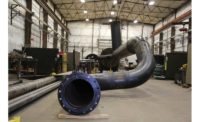
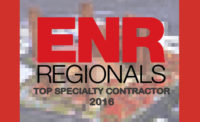
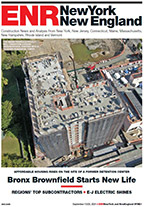
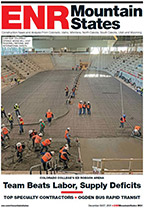
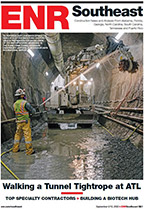
Post a comment to this article
Report Abusive Comment